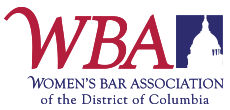The Women’s Bar Association of the District of Columbia (WBADC) is extremely disappointed by the U.S. Supreme Court’s decision in the Students for Fair Admissions, Inc. v. President & Fellows of Harvard College and Students for Fair Admissions, Inc. v. University of North Carolina, et al.[1] cases, overturning nearly 50 years of precedent allowing colleges and universities to take race into account as a factor in admissions.
This decision impacts colleges, universities and law schools across the country and will make it more challenging for students from historically marginalized communities to access educational opportunities. We are especially concerned about how the prohibition against affirmative action will affect the diversity of the legal profession.
In 2023, we are not delighted that affirmative action is still a necessary tool to promote inclusion in America. However, what deepens this cut is the Court’s failure to recognize America’s reality—that underrepresented and historically oppressed groups still face discrimination and that people of certain racial backgrounds have been deprived, in violent and unfair ways, of the basic rights and opportunities afforded to their white counterparts.
The Court’s endorsement of a race-neutral educational landscape shows its ignorance of an “endemically segregated society where race has always mattered and continues to matter.” (Sotomayor, J., dissenting). “[D]eeming race irrelevant in law does not make it so in life.” (Jackson, J., dissenting). It’s notable that the dissents of the two justices, who are women of color, one of whom is a former leader in WBADC, fight against the fallacy of colorblindness. This critical perspective is why WBADC advocates for the presence of women of color on the courts.
At the state level, we have already seen how affirmative action bans in Michigan and California caused enrollment among Black, LatinX, and Native American law students to plummet. In the wake of the Supreme Court’s decision, we encourage all law schools to look for ways to continue their commitment to the admission of diverse law students. In addition, we call upon all legal practitioners, consistent with their professional responsibility, to work within their firms, companies, and organizations to create and expand opportunities that will ensure a robustly diverse pipeline to the practice of law. Now more than ever it is crucial that the legal profession be representative of the society it serves.
WBADC, along with the Washington Bar Association, submitted an amicus brief in these cases, arguing that eliminating affirmative action by overruling the Court’s precedent “would be a devastating setback in the long struggle to fulfill the Fourteenth Amendment’s promise.”
We remain, especially now, steadfast in our commitment to fostering diversity and inclusion, maintaining the honor and integrity of our profession, and promoting the administration of justice.
“Ignoring race will not equalize a society that is racially unequal. What was true in the 1860s, and again in 1954, is true today: Equality requires acknowledgement of inequality.” (Sotomayor, J., dissenting).
[1] https://www.supremecourt.gov/DocketPDF/20/20-1199/232500/20220801172159876_220705a%20Amicus%20Brief%20for%20efiling.pdf
